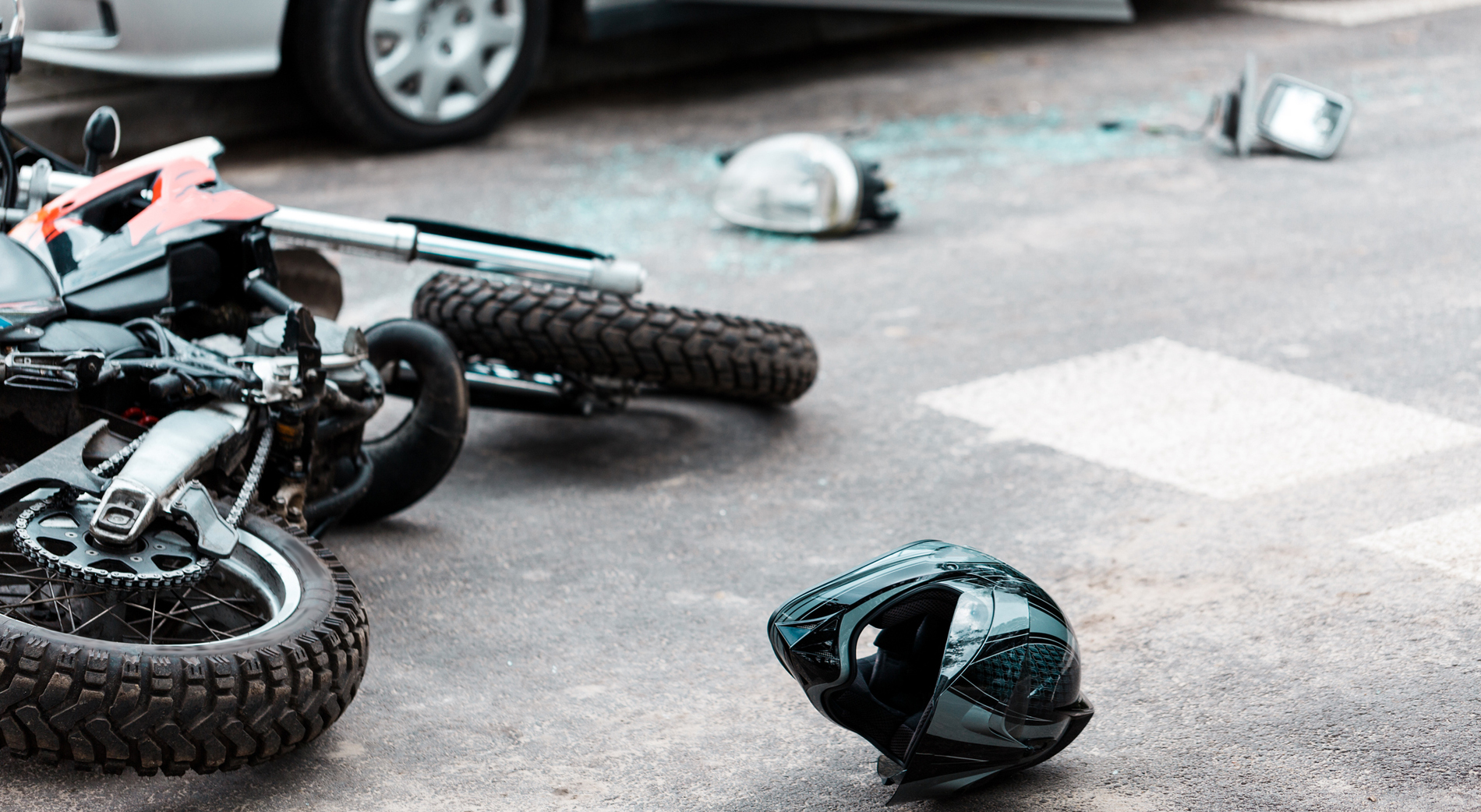There’s nothing quite like pulling your bike out of the garage and taking it out for a little joy ride around town. But unfortunately, a joy ride can quickly turn into a disaster when another irresponsible driver fails to operate their vehicle in an appropriate manner.
While the shock of being involved in a motorcycle accident can easily cloud your decision-making, it’s important that you prepare ahead of time so that you know precisely what to do.

5 Important Steps You Need to Take
Motorcycle accidents are, unfortunately, quite common. And when they do occur, they have a tendency to be deadlier than traditional accidents between two motor vehicles. According to one report, there are 35-times more deaths from motorcycle accidents than from car accidents (on a per mile traveled basis).
The most common causes of motorcycle accidents include:
- Head-on collisions (accounting for 56 percent of motorcycle deaths)
- Cars making left-hand turns (and failing to see the motorcycle)
- Motorcycle speeding and/or alcohol use
- Motorcycle lane splitting
- Road hazards (potholes, road kill, debris, etc.)
Common motorcycle-related injuries include traumatic brain injuries (TBIs), spinal cord injuries, lower limb injuries, internal organ damage, burns, and emotional trauma (like PTSD).
If you’re lucky enough to survive, it’s important that you take the following steps to protect your health, finances, and general well being:
1. Call 911
The first step is to call 911. It doesn’t matter what condition you’re in. Even if you think you’ve only sustained a few minor cuts and scrapes, you need to be seen by a medical professional as soon as possible.
Many motorcycle injuries are invisible at first and then appear hours (or even days) later, after the adrenaline has subsided and your body responds to the trauma. By getting medical treatment right away, you can identify these issues earlier and proactively address them.
2. Gather Evidence
If you’re physically able to do so, begin gathering evidence at the scene of the accident. This includes both physical evidence and observations.
If there are any witnesses at the scene, gather their names and contact information. You may even record a statement from them on the spot (if they give you permission).
While the details of the incident may be crystal clear to you right now, details have a way of getting cloudy the further away from the incident you get. This is why it’s a good idea to record in your phone exactly what happened. Audio, video, or written text works. The important thing is that you document the experience (and preferably with a timestamp).
3. Call Your Insurance Company
Once you’ve received medical attention, you’ll need to call your insurance company and notify them of the accident. It’s best to do this as soon after the accident as possible.
When talking with your insurance company, only provide the facts and necessary details. Don’t admit fault or start rambling about the experience. There will be time to provide additional information later. You’re simply getting the accident on record.
4. Hire a Lawyer
Don’t attempt to negotiate a motorcycle accident settlement on your own. Hire a motorcycle accident lawyer. An experienced attorney will help you conduct a prompt investigation, consult with experts, handle settlement negotiations with the insurance company, and aggressively litigate your case.
5. Focus on Recovery
Assuming you’ve hired a skilled and capable attorney, you’re free to focus on your recovery. (In fact, this is arguably the most important aspect of your motorcycle accident case.) Here’s what you need to do:
- Eat a healthy and balanced diet that’s high in fresh ingredients and natural foods. Eliminate as much processed junk from your diet as possible (as this only exacerbates the existing inflammation).
- Get as much rest as you can. You should be getting a minimum of eight hours of sleep each night (in addition to at least one nap during the day).
- Return to light-to-moderate physical activity as soon as your doctor tells you it’s safe to do so.
Look Out for Number One
Never assume that an insurance company is going to come to your rescue in the wake of a motorcycle accident. It’s up to you to look out for and protect your own best interests.
Hopefully this article has provided you with some clear steps on how you can respond in a safe and calculated manner. Good luck – and stay vigilant!